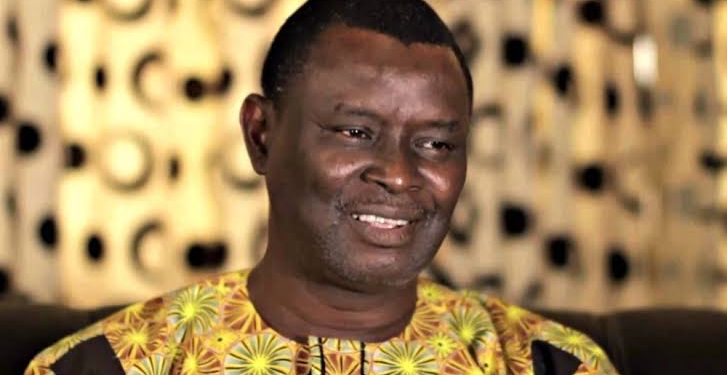Renowned evangelist and founder of Mount Zion Faith Ministries, Mike Bamiloye, has publicly defended the viral gospel hit Never Going Back by Gaise Baba and Lawrence Oyor amid growing criticism from some Christian circles.
The song, which blends Yoruba rhythms with a bold declaration of faith, has captured the hearts of many young Nigerians and has already amassed over 4 million streams across digital platforms. Despite its popularity, it has sparked controversy due to the artists’ appearance and the energetic style of the music video, which some critics— including a pastor—have condemned as unorthodox.
In a heartfelt social media post, Bamiloye expressed disappointment over the backlash, urging Christians to focus on the song’s powerful message rather than superficial details like Gaise Baba’s colorful hair, Lawrence Oyor’s headband, or their dance moves.

“Never Going Back – A Soundtrack for This Generation,” Bamiloye began. “So Never Going Back by Gaise Baba and Lawrence Oyor, hit the internet and it went viral, young people love it, but recently, I have been seeing videos of a pastor and some Christians criticizing the song and I can’t stop thinking about the message of the song and the reactions it has sparked amongst us Christians.”
He emphasized the challenges faced when reaching today’s youth with the gospel and stressed how impactful the song’s message is in such a context.
“Teenagers and young adults today are some of the most difficult people to reach with the gospel. Why? Because they’re constantly being influenced by friends, social media, entertainment, and everything in between.”
He continued, “In a world that glamorizes drugs, promiscuity, money-worship, and ‘love’ that fades faster than a Snapchat story, we finally get a song that boldly centers Jesus and personal transformation, that our youths are vibing to and some of us are criticizing it? What is wrong with us? Let’s take a step back.”
Highlighting the lyrics of the song—“Ife Jesu lo wa mi ri, to gbami ku o” (“The love of Jesus sought me, found me, and died for me”)—Bamiloye insisted this is the gospel presented in a culturally relevant way.
“Yet all some people can talk about is Gaise’s hair color, his blinks, the headband on Lawrence’s head and the dance steps in the song. Really?” he asked.
He referenced a line from the song—“I go narrow, dem think say I no know road o”—and connected it with biblical truth. “Isn’t that what the Bible teaches? Narrow is the path that leads to life. Didn’t Jesus say He came for the sick, the lost, the sinners? Will every gospel singer be Dunsin and Nathaniel?”
Bamiloye then turned attention to the potential spiritual impact of the song: “Instead of focusing on the outward appearance of the ministers, what if we focused our hearts on praying that: Out of 4 million streams, at least 400,000 youths would genuinely surrender to Jesus. Another 400,000 who are still searching would encounter the Holy Spirit and find salvation. The rest would be stirred to rededicate their lives and stay rooted in Christ. Wouldn’t that be worth celebrating?”
He warned that criticizing such gospel expressions risks driving young people further away from faith, especially when they are already surrounded by secular influences. “Whether we like it or not, someone is influencing your children, your teenagers, and your youth group. If they’re not listening to something like Never Going Back, they’ll be listening to something else and let’s be honest, a lot of what’s out there isn’t helping them know Jesus.”
“When we publicly condemn songs like this, directly or subtly, we shut the door to one of the few tools actually speaking the language of the street with the heart of the cross,” he added.
Bamiloye concluded with a plea for unity and support in the body of Christ: “I’m not a pastor, but I know this: Jesus came and died for sinners. None of us regardless of titles, appearances, or backgrounds is better than another, we’ve all simply found favor of God and are trying to live a life that pleases our Heavenly Father.”
“So rather than criticise, let’s pray. Let’s encourage. Let’s support gospel expressions that speak to this generation in their own rhythm. Haba!! some of us are still ‘saving the ark’ and we are not even aware of it. May God help us all.”

















